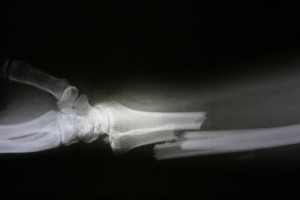Studies link metabolic syndrome to urinary problems
Researchers have linked metabolic syndrome to increased risk of lower urinary tract symptoms, but they found that weight loss surgery may lower this risk.
Metabolic syndrome is diagnosed when an individual has three or more metabolic risk factors, including abdominal obesity, high blood pressure, high cholesterol and high blood glucose levels.
Metabolic syndrome affects around 34% of adults in the US, putting them at higher risk of stroke, heart attack, cardiovascular disease and type 2 diabetes, among other conditions.
But these latest studies - published in the journal BJU International - have also associated metabolic syndrome with lower urinary tract symptoms, such as urinary frequency and urgency, bladder leakage, increased urge to urinate at night and incomplete emptying of the bladder.
In the first study, Dr. François Desgrandchamps and his colleagues, of Saint-Louis Hospital in France, analyzed data of 4,666 men aged 55-100 years who visited their doctor during a 12-day period in 2009.
Of these men, 51.5% had metabolic syndrome and 47% were treated for lower urinary tract symptoms.
The team found that lower urinary tract symptoms were more common among men with metabolic syndrome, and the more metabolic risk factors patients had, the more likely they were to be treated for such symptoms. Furthermore, urinary tract symptoms appeared to be more severe among patients with metabolic syndrome.
The researchers say their findings suggest a "significant link" between metabolic syndrome and lower urinary tract symptoms, adding:
"The prevention of such modifiable factors by the promotion of dietary changes and regular physical activity practice may be of great interest for public health."
Bariatric surgery improved lower urinary tract symptoms, despite amount of weight lost
The researchers of the second study - including co-author Dr. Richard Stubbs of Wakefield Hospital in New Zealand - investigated how weight loss surgery, or bariatric surgery, affected the incidence of lower urinary tract symptoms among obese patients.
They analyzed 72 patients who underwent weight loss surgery. Patients' health was assessed before surgery and at 6-8 weeks and 1 year after surgery.
As well as improvements in overall symptoms - including insulin sensitivity - 6 weeks after surgery, the team noted significant improvements in lower urinary tract symptoms among patients. "Interestingly," says Dr. Stubbs, "in our study, improvements in lower urinary tract symptoms were generally seen soon after surgery, and they did not seem to be related to the time course or degree of weight loss."
The researchers note that improvements in overall symptoms were present at 1 year after weight loss surgery.
Senior study author Andrew Kennedy-Smith, of Wellington Hospital in New Zealand, says it is surprising that lower urinary tract symptoms and symptoms of other conditions improved with bariatric surgery before major weight loss had occurred, noting that improvements in insulin sensitivity could be key. He adds:
"The relationship we have found between these symptoms and insulin resistance is of considerable potential importance. This finding calls into question our fundamental understanding of why these problems arise, and therefore how they might best be treated."
Although there is a widespread notion that obesity can cause insulin resistance, the team hypothesizes that insulin resistance could be a driver of obesity. As such, they say focus on developing treatments for insulin resistance could open the door to treatments for a number of conditions, including lower urinary tract symptoms.
Medical News Today recently reported on a study published in the journal
-
Smart Technique Weight Loss
How possible is it to achieve a good weight loss via hypnosis? How w
-
Saving Money In Weight Loss and Fitness
Reaching your weight loss and fitness go
-
Three Day Diets I Would Say The Smartest Method To Help You Shed Unwanted Weight
There are tons of three day diets these
-
4 Simple Ways to Detox Your Liver
Have you ever seen a guy that was so in love with his car? And I am
-
Green Tea Weight Loss Patch
The low carbohydrate or low-carb diet ha
-
Are There Turmeric Benefits that May Help You Lose Fat?
Losing weight is among the most difficult things to accomplish. A
- DON'T MISS
- Best Weight Losing Tips For Slimming Down
- Body-For-Life Challenge Summarized
- Weight Loss Diet For Women
- Do Men Really Care About Their Weight?
- Are You Ready To Lose Weight?
- Website For Natural Weight Loss Guides
- Kettlebell Exercises: More Significant Next to the Power of the Force?
- Learn How To Get A Flat Stomach After Having A Baby
- The Way To Lose Pounds With An Exercise Bicycle System
- You’re Going To Enjoy This Weight Loss Advice




